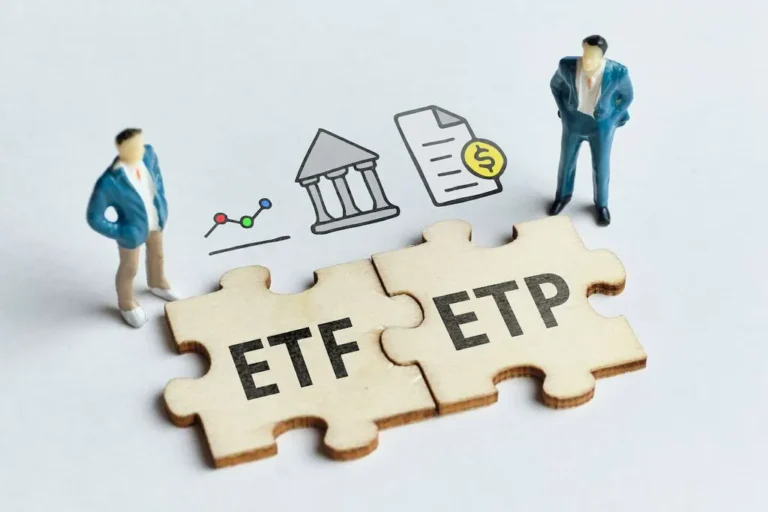Content
Its prices range from around $79 to $249, and Ledger can integrate with many popular software wallets such as Crypto.com and Guarda. Ledger has a highly rated mobile app, plus a dedicated desktop app and a browser extension. Ledger also has two-factor authentication available, https://www.xcritical.com/ and a library of educational content for users. Trust Wallet is a non-custodial wallet, meaning that you retain full control over your private keys and funds.
What type of security features should I look for?
But Smart contract software wallets are only as good as their programming, and hackers are always looking for weak points in the security at brokers and crypto exchanges. So the protection offered by software wallets depends heavily on the quality of the wallet itself. In effect, you can’t transact in crypto without some kind of digital wallet.
Frequently asked questions about wallets
That said, certain advanced features and resources may jack up the price. If those features are worthwhile, paying slightly higher fees may be worth it. Uphold is good for crypto traders interested in discovering emerging coins and tokens and asset-to-asset online crypto wallet trading. Compared to other exchanges, however, Uphold lacks advanced charting features and charges high fees. Crypto wallets are software programs that can be installed on a computer (software wallet) or on a physical device (hardware wallet).

Steps Required to Create a Paper Wallet
They must be connected to your phone or computer (via USB or Bluetooth) in order to access the Internet. Crypto wallets hold the user’s private key and information, while public keys are located on the blockchain. With the combination of public and private keys, a crypto wallet can enable a secured operation to validate a balance and send or receive cryptocurrency transactions. Exchange wallets offered on crypto exchanges are particularly useful for active traders and those who frequently carry out transactions. These wallets are usually custodial wallets, meaning the exchange holds the private keys and thus the responsibility for the security of the holdings. They offer the convenience of conducting transactions directly on the platform without having to transfer funds from an external wallet first.
An online wallet is a type of software wallet that is accessible through a web browser. It is hosted on a server and allows the user to access their cryptocurrencies over the internet. Non-custodial crypto wallets are the type of storage option preferred by many crypto enthusiasts because they place you in control of your own private data. Unlike when you keep assets on a cryptocurrency exchange, with a non-custodial wallet, you don’t have to trust a third party to secure your private keys. Having a secure and user-friendly crypto wallet is important, especially for crypto newbies. Trust Wallet, with its intuitive design, strong security features as a non-custodial wallet, and support for a wide range of digital assets, makes it the perfect choice for crypto newbies.
Make sure to back up your seed phrase (or private keys) in case you lose access to your phone. When using a crypto exchange, you will have a non-custodial wallet that is managed by the company. While exchange wallets are more convenient for inexperienced users, you are entrusting the service provider with your keys and assets. So, it’s important to choose a trustworthy and secure provider like Binance. A crypto wallet is a tool that allows you to interact with blockchain networks to manage your cryptocurrencies and other digital assets.
Some wallets may be best for storing and managing your cryptocurrency, such as one of Investopedia’s best Bitcoin wallets. Research all crypto wallet options before deciding which is best for you. Electrum is a great option for desktop traders as it is compatible with Mac, Windows, and Linux. The desktop app offers many customizable features suitable for sophisticated crypto traders with programming experience. Crypto.com DeFi wallet lets you view, share, and deposit NFTs across multiple blockchains.
While anyone can send crypto to a public crypto address, your private key works alongside it to prove that you’re the owner of the crypto received in the transaction. If you want total control over your crypto or plan on using web3 applications, a non- custodial wallet is the way to go. These wallets might be slightly more complicated to use, but they offer greater security and flexibility. This gives you full control of your cryptocurrency and helps keep it safe from hacks, scams, and theft. In countries facing high levels of inflation or capital controls, crypto wallets give people a way to store value that can’t be confiscated by their governments.
Crypto wallet users get to choose not just the service or vendor that supplies a crypto wallet, but the deployment approach as well. Some wallets can be loaded on computers which are vulnerable to malware. Securing your computer, using a strong passphrase, moving most of your funds to cold store or enabling 2FA or multifactor authentication can help you protect your bitcoin. Since anyone can remove funds from an address with that address’s matching private key, it’s critical to protect your private key information. Crypto wallets all begin with a private key, a long, randomized string of letters and numbers. These private keys can also take the form of a QR code or mnemonic phrase.
Further innovations could include seamless interfaces between different blockchain networks and even greater automation through smart contracts. In the dynamic world of cryptocurrencies, continuous learning is key to staying up to date and fully leveraging the advantages of evolving wallet functions. You can find more information on multi-signature wallets and DeFi in our Bitpanda Academy. Finally, the user experience can be improved by using a dedicated wallet for your crypto assets. The interfaces of such wallets are often more user-friendly and provide a better overview of transactions and holdings. Whether you create a Bitcoin (BTC) wallet or another crypto wallet, the specialised software helps optimise your crypto experience.
They are managed by a third party, which could be an exchange, a company, or even just another crypto user. These wallets are convenient because you don’t have to worry about losing your private keys or managing them yourself. Crypto wallets that let users hold their private keys make self-custody possible for everyone. When you use your private key to sign a transaction, the network can verify that the private and public keys represent a pair — while still maintaining the privacy of the information.
- They’re like the password to your bank locker, unique to you, and if someone else gets hold of it, they can access or move your funds.
- A crypto wallet is an essential tool for securely managing your digital assets.
- Well, Ledger crypto wallets contain many components and features that set them apart from other devices on the market.
- With BitBox02, a hardware wallet, you can store your crypto private keys and manage any assets offline through an external chip.
- Software wallets are entirely digital, usually free, and come in both custodial and non-custodial varieties.
- They work like Google Pay or Apple Pay when you find a retailer that accepts crypto.
- Moreover, these centralized entities must comply with local laws, potentially exposing your assets to legal risks or provider-related issues.
You might also have to enter a code sent to your phone number and upload a picture of your photo ID for verification. Pick a wallet app and download it on a desktop or mobile device; many software wallets have both options. Cryptocurrency wallets are applications that allow you to securely store, send, and receive cryptocurrencies. Customers report that KeepKey’s hardware is lower quality than other cold wallets.
Once the transaction is signed, it’s safe to transfer to an internet-connected device, which your hardware wallet will usually do via a USB cable. Always prioritize security by safeguarding your seed phrases and private keys. If you are using custodial services, look for trusted and reputable providers. Consider using a hardware wallet if you plan to hold your assets for a long time or if you’re holding large amounts of cryptocurrency.

When you sign transactions using your private key, this verifies that you authorize the terms of the transaction. To execute the transaction, the blockchain nodes verify your account has the funds required to execute your request and that your signature is authentic using your public key. In fact, that’s where your blockchain address comes from, it’s simply a more human-readable translation of your public key. Each account you generate has a private key and a corresponding public key. While the private key grants the owner access to the blockchain account, the public key serves as the account’s unique identifier.
It offers decentralized finance tools like day-to-day crypto activities, access to other decentralized apps, and one-to-one crypto swap features. Unfortunately, hacks and scams are rampant in the cryptocurrency space. All wallets at their core—physical or digital—hold your authority so you can exercise it wherever you go. Understand how the self-custodial model puts you in charge of your cryptoassets and protects you from third-party risk. This text is informative in nature and should not be considered an investment recommendation.


Leave a Reply